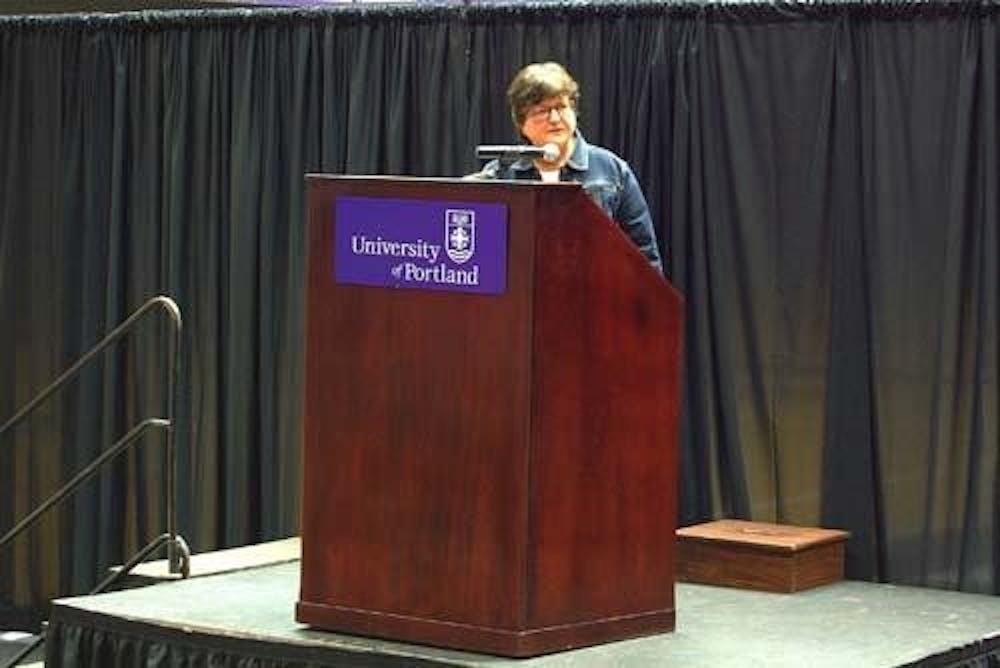Sister Helen Prejean has advocated against the death penalty since she corresponded with inmates on death row in 1981. Prejean’s experiences were turned into the academy award winning movie “Dead Man Walking.” (Stephanie Matusiefsky | THE BEACON)
By Lydia Laythe, Staff Writer laythe16@up.edu
The day before her lecture, Sister Helen Prejean took a moment to chat with the Beacon over lunch.
Q & A
Q: Why is it important to speak out against the death penalty, especially on a college campus?
A: The death penalty is not something people reflect on a lot. Sometimes they get caught up in 'look how outrageous that murder is, they deserve to die.' It's all about getting people to reflect more deeply, and I do that through story telling. And I take them through experiences, because I've grown in them.
Q: Is humanization of the death penalty a big part of what you do?
A: When you see that human face ( of a person who committed a murder), and you recognize the horror of the crime, you face it squarely. It keeps bringing you back and forth, and that ambivalence is in our own hearts. Two conflicting ways going on in our own hearts. And bring people there. Open it up to just raise a question: 'Might there be a better way?'
Q: What can people, like UP students, do to help stand up against the death penalty?
A: Acton is liberating. What stymies us and frustrates us is when we know something and we can't let that energy flow through into action of some kind. The way consciousness changes in a community is when people begin to talk about it and get educated about it. And then things change.
Q: What drives you to continue speaking out against the death penalty?
A: I've seen the suffering. I've seen what happens when a human being is killed. And I've also seen what happens to the guards that have to do the killing. I know when people say 'Well they've got to die', that's the starting point for a conversation, it's not the ending point. And sometimes in the first conversation with someone who is really [adamantly for the death penalty], you may not be able to do much with them, so you just keep moving. So I like when I can talk to a large audience because you know you're reaching a wide spectrum of people in there. It's to help them make the next move.








